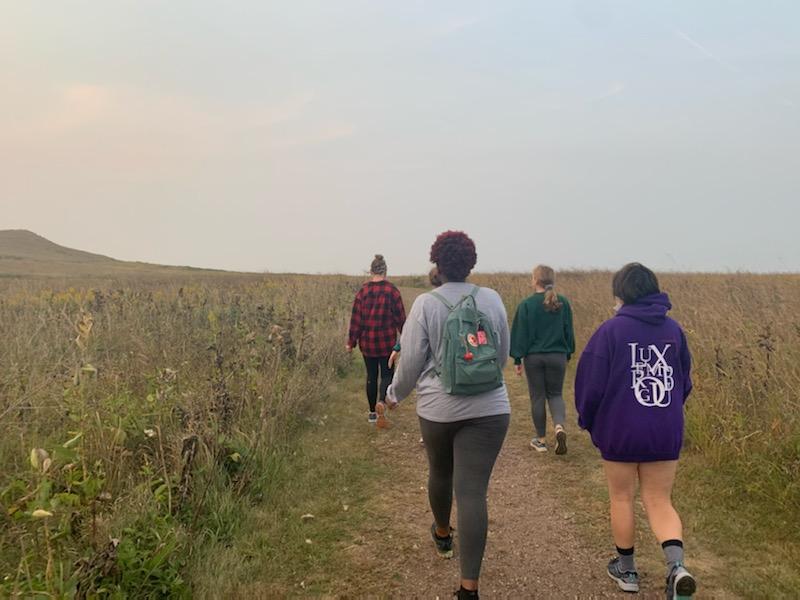
Environmental Club and Sustainability Department see growth, aim for more involvement
A year after changing its name, the USD Environmental Club hopes to make sustainability inclusive and possible for all college students.
Holly Black, president of the Environmental Club, said the organization was formerly known as SUST, or Students Understanding Sustainable Tactics, Club before it changed its name in the fall of 2019.
“I think that abbreviation really confused some people as to not knowing what SUST or sustainability really is,” Black said. “I never wanted it to feel just exclusive to the major.”
Black, a junior biology and sustainability double-major, has been involved with the club since her freshman year. Now, as president of the club, Black said she is hoping to increase involvement with students from all disciplines and make sustainability more accessible to a college demographic.
“My hope is that we can really pick up a student participation to keep members coming and to actually make an impact on campus and in the community, and really help out with volunteering and service activities,” Black said.
The Environmental Club hopes to host a number of events this year, including a hike at Spirit Mound, a “going green” boot camp tailored to sustainability in college, an Earth Days fair in the spring and a river cleanup in Yankton.
However, Black said, students don’t have to partake in these events to be involved in sustainability.
Faith Ireland, a senior sustainability major in her first year of law school through the 3+3 Fast Track program, was an executive member of the Environmental Club and an Student Government Association student senator when the MUC transitioned to using paper straws.
Ireland brought a resolution to SGA outlining the benefits of biodegradable straws and how it applied to students. SGA passed the resolution and drafted an advisement to Aramark to switch to biodegradable or paper straws in the MUC, Ireland said.
Although SGA’s advisement may not have been the sole reason for Aramark to make the switch, Ireland said she was excited to see something she was passionate about put into effect on campus. The change allowed students to indirectly take part in sustainable actions.
“Students don’t have to do anything to be in this initiative and they just instantly are (part of it) by ordering a coffee or a drink,” Ireland said.
Meghann Jarchow, Chair of the Department of Sustainability and Environment, said it is important not to shame others when working for sustainability.
“One of the things I try to push with sustainability is that sustainability is not a field of shaming.” Jarchow said. “…We don’t mean to have it as a goal to tell people everything they’re doing wrong.”
Jarchow, who is the faculty advisor for the Environmental Club, said strong leadership in the club has led to more active engagement in recent years. In addition, the Department of Sustainability as a whole has seen growth since its inception in Jan. 2018.
The department, which includes an undergraduate and graduate program, currently has around 60 students, Jarchow said. Just like with the Environmental Club, Jarchow said her goal for the department is to reach out to more students.
Jarchow said people don’t know sustainability is a major because it’s a growing field and many students don’t get experience with it in high school. To combat this, the department reaches out to high school guidance counselors to build awareness early and hosts events to build awareness on campus.
Introductory courses in sustainability now fulfill USD general education requirements, so students can get experience with sustainability while completing those credits, Jarchow said.
The department is also hosting the “Sustainability Current,” a biweekly, virtual gathering for students involved in the sustainability program to come together and discuss the role of sustainability in their lives and the world.
“(I hope) that sustainability would more broadly come to be understood as something that’s working to create a better future as opposed to shaming people about actions today,” Jarchow said.


